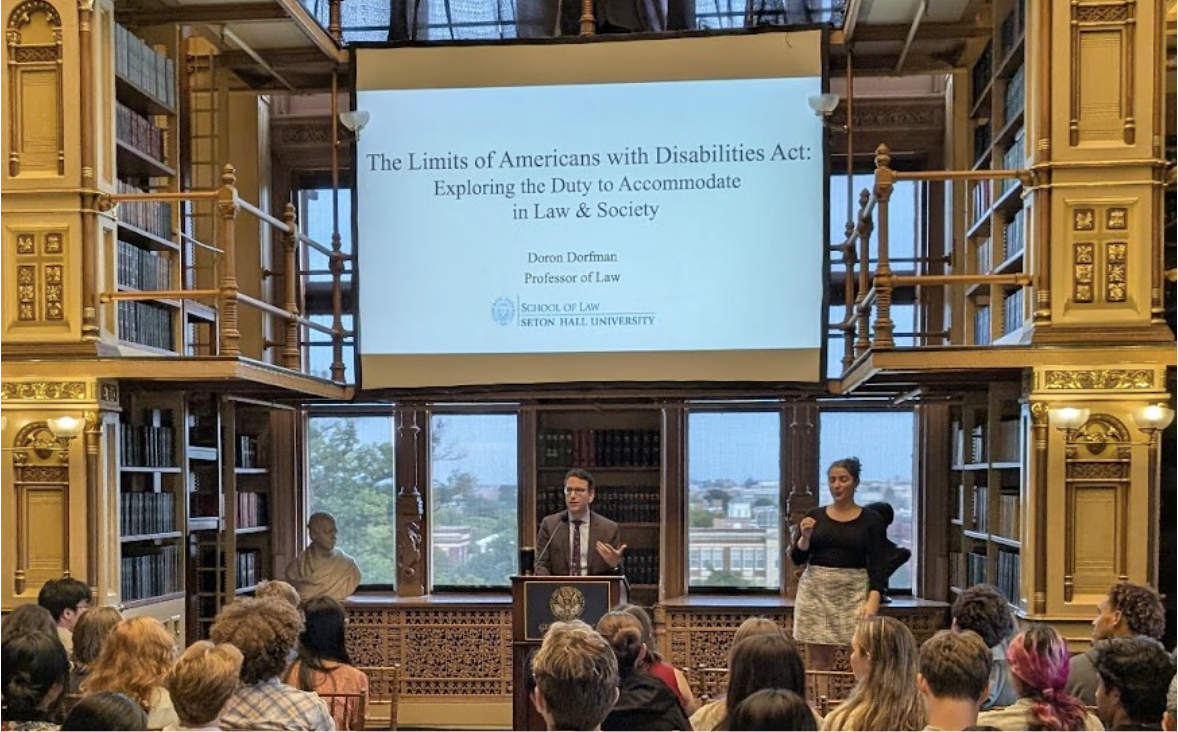The Georgetown University Lombardi Comprehensive Cancer Center invited health officials to discuss a partnership between Northern Ireland and the center in a March 13 lecture.
The lecture celebrated the multilateral agreement from 1999 that sought to reduce cancer incidence and mortality. Northern Ireland looks to learn from the Lombardi Center, which is Washington, D.C.’s only NCI-designated cancer center. Northern Ireland’s approach to evaluating health-relevant data in cancer research offers valuable insights to the Lombardi Center, fostering mutual growth and innovation.
A delegation of officials — including Mark Lawler, associate pro-vice-chancellor and professor of digital health at Queen’s University Belfast, and Mike Nesbitt, the Northern Irish minister of health — represented Northern Ireland. The speakers discussed the importance of global collaboration in improving data-informed cancer research.
Lawler said partnerships between the United States and Ireland have been particularly successful in increasing cancer survival rates and the number of patients in cancer clinical trials.
“We’re doing more together — publishing papers together, working together and running rounds together — but I think what’s most important is that we’re doing it better together,” Lawler said during the event. “The quality as well as the quantity has gone up significantly, and also it’s meant that we have had 40,000 patients now involved in cancer clinical trials, and 10-15% improved in survival.”
Lawler said Northern Ireland aims to majorly digitize health care, allowing for more learning, trust and collaboration with the United States and the Lombardi Center.
“We are looking at ways in which we can use digitalization to essentially create a digital Northern Ireland initiative, and then we can work together much more effectively,” Lawler said. “This is what we are thinking in relation to what it looks like in trusting a research environment for Northern Ireland.”
Emily Ko (NHS ’18), the Cancer Center Support Grant program manager at the Lombardi Center who attended the event, said the collaboration with Northern Ireland is particularly important considering Georgetown’s Jesuit identity.
Full disclosure: Emily Ko formerly served as corporate development director and as a Guide columnist for The Hoya.
“I think one of the benefits is our shared value system as a Jesuit university,” Ko told The Hoya. “It’s something that I think we have potential to collaborate with them on, especially with community outreach and engagement and other programs that we have here, so I found that to be a really resounding, positive thing to look forward to with this upcoming collaboration.”
Kristi Graves, a professor of oncology and member of the Cancer Prevention and Control Program at the Lombardi Center, said there are unique opportunities for research and bi-directional learning through the partnership.
“This may be a new type of opportunity to formally develop collaborative efforts that span a variety of activities,” Graves wrote to The Hoya. “Not only research, but also work with the community and work within each institution to promote trainee, staff and faculty development.”
Ko said the sharing of knowledge to fight cancer will greatly improve the future of medicine and cancer research.
“We’re at the forefront of new ideas and innovations and medicine, especially in cancer research, so I think any time that we can share our ideas with other researchers, other types of collaborations, publications, it is always a great thing to do,” Ko said.
Looking to the future, Lawler said that the collaboration between the Lombardi Center and Northern Ireland will drive success by synthesizing knowledge.
“It’s how we can bring together expertise that we both have to drive the war on cancer,” Lawler said.




